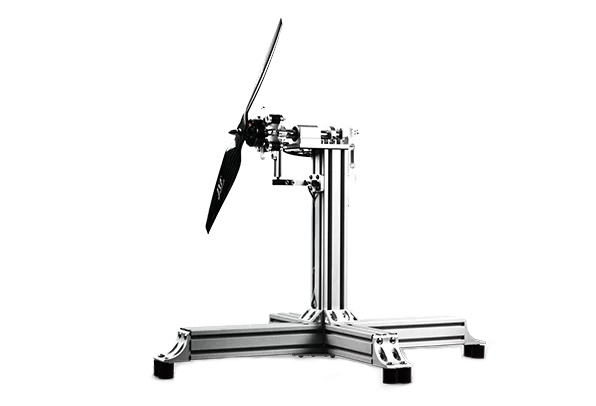Mastering the Art of Utilizing a Thrust Stand for Precise Measurements
In the world of engineering and aerodynamics, precision is paramount. When it comes to measuring thrust, especially in the context of engines, rockets, or other propulsion systems, a motor thrust stand plays a pivotal role. In this comprehensive guide, we will delve into the intricacies of using a thrust stand effectively, ensuring that you are well-equipped to harness its power for precise measurements. Let's explore the steps and techniques involved in making the most of this valuable tool.

Before we dive into the practical aspects of using a thrust stand, it's essential to grasp the fundamentals. A thrust stand is a specialized piece of equipment designed to measure the thrust produced by various propulsion systems. It does so by precisely quantifying the force exerted in a particular direction, allowing engineers and scientists to analyze and optimize their designs.
Assembling Your Thrust Stand
Step 1: Gather the Necessary Tools
To get started, ensure you have all the required tools and components ready:
Thrust stand frame
Load cell (strain gauge)
Data acquisition system
Power supply
Mounting brackets
Safety equipment (gloves, safety glasses, etc.)
Step 2: Mount the Load Cell
Attach the load cell securely to the Drone thrust stand frame using the mounting brackets. Ensure that it is properly aligned and can measure the force accurately.
Step 3: Connect the Data Acquisition System
Connect the load cell to the data acquisition system. This system will record and display the thrust measurements during testing.
Step 4: Power Up
Connect the power supply to both the thrust stand and the data acquisition system. Make sure everything is powered up and functioning correctly.
Conducting Thrust Measurements
Step 5: Prepare the Test Setup
Before running any tests, it's crucial to set up your propulsion system securely on the thrust stand. Ensure that all connections are stable, and the system is aligned with the load cell.
Step 6: Initiate the Test
Start the propulsion system and record the thrust measurements on the data acquisition system. Ensure that all safety precautions are followed during this process.
Step 7: Data Analysis
After the test is complete, analyze the data to determine the thrust output of your system accurately. You can use various software tools for in-depth analysis.
Conclusion
Utilizing a thrust stand effectively is crucial for obtaining precise measurements in the field of propulsion systems and aerodynamics. By understanding the basics, assembling your thrust stand correctly, and following the steps for conducting thrust measurements, you can gather accurate data to enhance your engineering projects. Remember, precision is the key to success in this realm, and a well-utilized thrust stand will be your invaluable ally in achieving it.
555
0
0
Previous: What is the use of MEMS gyro?


Comments
All Comments (0)